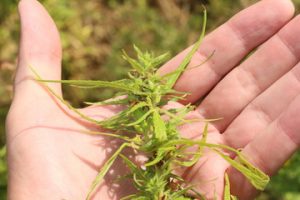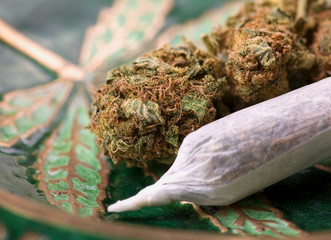Marijuana Allergy: Causes, Symptoms and Treatment
What is a cannabis or marijuana allergy? Does Marijuana cause allergy? Can it affect you? How is marijuana allergy diagnosed and treated? Find out your answers here.
Do you experience red or watery eyes, fever and nausea after taking weed?
It means that you are allergic to cannabis.
While marijuana has health benefits, gets you high and is used in several health concerns, it is an allergen causing pollen like allergy signs. Cannabis allergy mimics eczema and generally occurs 20-30 minutes after getting in touch with the plant, let alone smokes it, eat it or inhale it. It is common among budtenders, recreational consumers and those who use it for therapies.
Medical cannabis can potentially be an effective treatment for patients who do not have any other treatment options, but the 2007 study revealed that marijuana could trigger specific skin irritations like itchiness, hives, dry or scaly skin, and inflammation. Even worse, sometimes it leads the person to anaphylactic shock, a severe condition that drops the blood pressure and blocks the airways. Marijuana allergy can be lethal if left untreated. A recent study done by researchers in Belgium concluded that marijuana plant is associated with allergic symptoms like skin rashes, hay fever and pink eye when marijuana is smoked, chewed and inhaled.

How Can Marijuana Be Allergic?
Marijuana is produced from the leaves and flowering tops of cannabis plants referred to as Cannabis sativa. Like all flowering plants, cannabis plants are fertilized by the spread of pollen. And pollens are a common source of allergic reaction, making cannabis a potential allergen.
Sometimes cannabis becomes mouldy when stores, meaning that it can be sensitive to the people with mould allergies. Some people are allergic to both plant and mould. Marijuana pollens are found to trigger the signs of allergic rhinitis, asthma and conjunctivitis.
Taking marijuana in any forms, whether it’s eating marijuana seeds, smoking or consuming marijuana edibles can trigger an allergic reaction. Although there are so many proven medical uses of marijuana, it is also shown to cause allergy.

Marijuana allergy
How to Tell If You Can Be Allergic to Marijuana?
You are vulnerable to marijuana allergies if you are allergic to a food or substance with similar protein properties. These foods are tomatoes, peaches, eggplant, almonds, chestnuts, apples, bananas and grapefruit.
The allergic reaction of marijuana varies based on the amount a person takes. Simply put, an allergic person smokes5 weeds is likely to experience more itching than the one who takes one joint.
What are the Symptoms Caused By Marijuana Allergy?

1. Breathing Problems:
Do you feel short of breath after taking weed? Well, it is one of the common signs and symptoms of marijuana allergy. No matter if you are a beginner or inhale marijuana in any other form, you may experience this if you are allergic to marijuana.
2. Congestion and Sneezing:
Allergens like marijuana cause inflammation in the lining of your nose. Consequently, you may experience sneezing, stuffiness, runny nose and congestion. This condition is known as rhinitis or hay fever.
3. Itchiness:
If you feel intense itching after using or handling marijuana, it means that allergy has hit you. This itching is known as marijuana allergy itching. Once the skin cells sense any foreign object, they trigger a reaction that prompts inflammation in the affected area which in turn leads to itching. Itching is often coupled with rashes or hives. It is called marijuana allergy rash.
4. Anaphylaxis, the Worst Marijuana Allergy:
Anaphylaxis is the deadliest allergy caused by marijuana. As I have told you in the opening paragraph, it is a condition that drops the blood pressure and blocks the airways. It takes side-effects to occur after a couple of minutes. The signs include troubled breathing, difficulty in speaking, swelling, rash or hives. The reaction covers the entire body, sending the person into a state of shock. This life-threatening condition requires immediate medical attention.
Diagnosis and Treatment of Marijuana Allergy
If you suspect you have developed a marijuana allergy, it is better to see your physician.
Generally, skin tests are used to pinpoint any allergies. These tests may require marijuana extracts (that come with legal restrictions). Besides, blood serum test is performed. If both tests are not available, a physician will conduct the diagnosis by the signs and exposure.
Cannabis allergies are treated just in the same way as other allergies. A physician may prescribe you antihistamines, intranasal steroid, and nasal decongestants to treat the symptoms. Epipen can be prescribed in case of anaphylaxis.
The best way to prevent getting marijuana allergy is to avoid it. But it may be difficult if you are vulnerable to airborne pollen exposure or when you use marijuana for medical purpose. Therefore, you should seek professional medical advice for an optimal solution.
Author Bio:
Romit is a Marketing Manager at Phytoplant Research S.L., a Medicinal plants research and development company in Spain.








